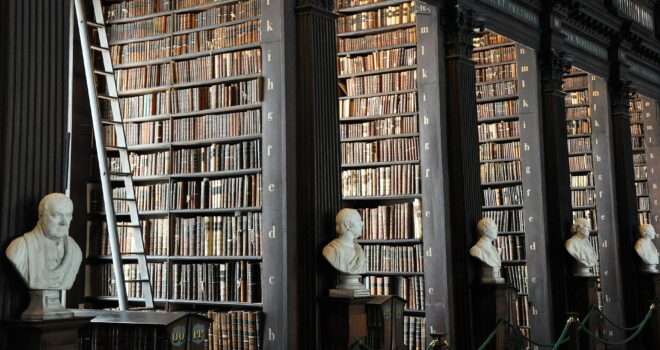Philosophers frequently utilize broad categories such as “being” and “non-being.” What may be surprising to those not initiated in philosophy is that these categories, broad as they are, are not detached from the individual person. The general and the specific can be integrated with each other. It is possible, therefore, to speak of anxiety in terms that are general and specific at the same time. Philosophy can provide important insights into a person’s life.
We all experience anxiety in one way or another. We are finite and fallible beings who are threatened on a daily basis with non-being. “Being” describes who we are as individual personalities. Non-being refers to threats to out being. These threats to the undoing of our being are many and include death, despair, meaninglessness, sickness, disappointment, embarrassment, immorality, and other experiences that are at war with our being. Anxiety is the recognition of this unstable situation. Things can go wrong at any minute. We are fragile and vulnerable creatures. We need a defense against the dangers of non-being.
We need a particular strength so that our being retains its upper hand. We may refer to this strength as “courage.” This is the virtue that holds us together, that keeps us from falling apart in moments of anxiety. It is an essential virtue. Philosopher/theologian Paul Tillich has described courage as “the readiness to take on negatives, anticipated by fear, for the sake of a fuller positivity.” Boethius defined it as “self-possession in the face of adversity.” In either case, courage is the ability to overcome the fear of non-being so that one’s being remains intact.
The world of sports offers us many examples of anxiety and the need for courage. Let us imagine the bottom of the ninth inning in a baseball game when the home team is trailing by a single run. The batter strides to the plate knowing that the game is on the line. There are two outs, and the bases are loaded. He feels the pressure. Hemingway was correct in defining courage as “grace under pressure.” The batter is only too aware of the fact that non-being is his nemesis. Even if he is a good hitter, the chances of making an out greatly exceed the chances of his getting a hit. He must be cool. The expression “ice in his veins” characterizes the player who can concentrate on what he must do and not be distracted by the probability of making an out. He needs courage so that he can be at his best, though in the pressure cooker. We admire the “clutch” hitter who can be at his best in a tense situation. We would like to imitate him when our own “turn at bat” arises.
It would be a poor ball player who would beg his manager to pinch hit for him because he was overwhelmed by the possibility of making an out. And yet, we ask ourselves, how well do we stand up under the pressure of the moment? We might decide not to go to the interview for fear that we would not get the job. A young boy at a gala decides not to ask an attractive girl for a dance for fear of rejection. A patient refuses to see his doctor because he is afraid of what his doctor might tell him. These anxieties are common and well known. In each of the three cases to which we have referred, the person avoids a negative outcome by avoiding what could be a positive one. Paul Tillich finds such choices in which the person is overcome by fear as neurotic. Thus, he can state that, “Neurosis is the way of avoiding nonbeing by avoiding being.”
We can avoid life and all its promises by avoiding the various experiences of non-being that are in the way. In preferring a life that is safe, we invite a life that is deprived. “He who is not capable of a powerful self-affirmation in spite of the anxiety of nonbeing is forced into a weak, reduced self-affirmation.” We need the courage to be fully ourselves. We should not submit to non-being. Anxiety is not a purely negative phenomenon. Indeed, as T.S. Eliot states, “Anxiety is the handmaid of creativity.”
While many of the existentialist writers call upon courage in situations of anxiety, Christians are asked to trust in God. In Matthew 6:25-34 we read:
Therefore, I say to you, do not be anxious for your life, what you shall eat; nor yet for your body, what you shall put on . . . But seek first the kingdom of God and his justice, and all these things shall be given you besides. Therefore, do not be anxious about tomorrow; for tomorrow will have anxieties of its own. Sufficient for the day is its own trouble.
St. Luke restates this message in 12:22-32.
Anxiety is most assuredly not a sin. But it is an occasion for prayer and trust in God and His promises of care as exemplified by the care that He gives to birds and flowers.
In moments of anxiety, courage will serve us well. At the same time, we should not neglect prayer that is based on our trust in God’s promises. Trust in God’s care together with our own courage make an effective tandem in dealing with anxiety.
Photo by Alex Block on Unsplash

















